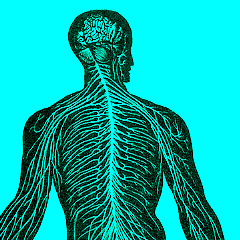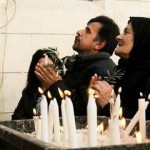Paul speaks of the church as being the body of Christ, and he’s rather literal with the metaphor.
“The eye,” he writes, “cannot say to the hand, ‘I have no need of you,’ nor again the head to the feet, ‘I have no need of you'” (1 Cor 12.21). The Christian life depends upon other Christians. Ours is a contingent existence. Only in communion with each other do we find the means to live our faith.
I reflected on that fact while recently reading about the death of Étienne de la Boétie. On August 17, 1563, this young Burgundian magistrate, not quite thirty-three years old, laid dying of a sudden affliction, likely dysentery. The day prior a priest came to pray. Now he came to provide last rites. Loved ones pressed around him, grieving.
When the priest turned at last to leave, La Boétie stopped him. “I want to say this . . . in your presence,” he said, La Boétie’s words recorded by his closest friend, the essayist Montaigne, present in the room. “I protest that as I have been baptized, as I have lived, so I want to die in the faith and religion which Moses first planted in Egypt, which the patriarchs then received in Judea, and which from hand to hand, in the progress of time, has been brought into France.”
La Boétie next asked his nearby uncle and Montaigne to pray for him. “For these are the best services that Christians can do for one another,” he said.
He died the next day.
Delivered by hand
La Boétie offers us a striking picture of the dependence about which Paul instructed the Corinthians. He first expressed it at the most basic level by describing the faith passed “hand to hand.” We don’t originate the faith; it is a gift, given by the church, passed hand to hand from the apostles themselves, who received it from Christ.
This is what Paul himself tells the Corinthians. “I commend you because you . . . maintain the traditions even as I have delivered them to you. . . . For I received from the Lord what I also delivered to you. . .” (1 Cor 11.2, 23). The word tradition means literally to hand over. As Paul earlier asks in the same letter, “What have you that you did not receive?” (1 Cor 4.7)
As Christians, we are utterly dependent upon this reception, this handing over. Think of this: Jesus wrote nothing. We are dependent upon the apostles for his teaching and the accounts of his life. Likewise, we are dependent upon the careful copying and preservation of the letters of Paul, Peter, and James. These writings were nurtured in the womb of the early church. Without the curation of the stories by the early believers, their cherished reflections, La Boétie would have been unable to express his desire those fifteen centuries later.
It’s the same with us. We are like La Boétie and the Corinthians before him. What we have is a gift, something delivered to us and taken up by us in our hearts as our own. We have no right to consider the faith a private possession. We do not determine its worth or properties. Those values existed before us, independent of us, first in the hearts and minds of those who personally knew Jesus and then taught their children and neighbors.
We are taken up into the gift as much as we take it into ourselves. That means that the dependence is not from the gift toward us; it is from us toward the gift and to those who gave it. Our possession of the gift depends upon those faithful forebears who preserved it, taught it, and lived it. We hold it in a communion that extends through all time.
Upheld by others
This dependence relates directly to the maintenance of the gift, which brings us to La Boétie’s statement about prayer — “the best,” as he said, “services that Christians can do for one another.” As we are dependent upon others for the gift of the faith, so we are likewise dependent upon others for the gift of prayer. One brings us into communion, the other upholds us in that communion.
When we pray the Lord’s Prayer, the language is collective. When Christians pray to our Father and ask for our daily bread and forgiveness for our trespasses, we are upholding each other in all our needs before the merciful Heavenly Father.
Importantly, this communion of prayer is also unbounded by time. As we trust in the gospel delivered by Peter and Paul, and the rest of the apostles, so we trust that their prayers support us even now. Isn’t that what we see in Revelation? The twenty-four elders, surrounding the throne of God, prostrate themselves and offer the prayers of the saints before the Lamb of God (Rev 5.8). Following the twenty-four elders, the martyrs likewise cry out (Rev 6.9). They pray with us and for us in complete dependence on God and total hope of his ultimate victory.
Commenting on Paul’s first letter to Corinthians, Theodoret of Cyrus used words like “useless” and “helpless” to describe life without the body. Without God’s provision of the body, the diversity of its members, their past labors, present efforts, and future hope, there is no Christian life for you or me.
Christianity is no private affair. It’s a communion of mutual dependence. We don’t get here on our own, and we don’t stay here on our own either.













